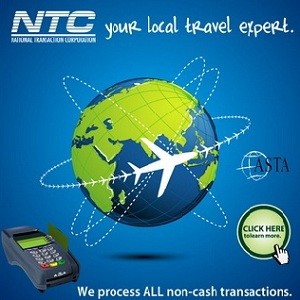August 29th, 2014 by Elma Jane

High risk credit card processing is electronic payment processing for businesses deemed as HIGH RISK by the MERCHANT SERVICES INDUSTRY
The high risk segment of payment processing has become more important as banks and ISO’s have begun to tighten up their credit restrictions and underwriting policies. Businesses are classified as high risk primarily because of their product or service and the way they go to market. In merchant services, risk is related to CHARGEBACKS or customer disputes.
The more likely a business to have chargebacks, the higher risk the business. For instance, online businesses selling a weight loss product through a free trial offer, is more likely to have chargebacks than a retail store selling the same weight loss product.
Merchants are often unaware their business falls into the high risk category when they first start shopping for a merchant account. Getting a high risk merchant account can be difficult.
These providers have more stringent requirements and the application process is longer compared to traditional merchant account providers.
High risk businesses should expect to pay higher rates and fees for payment processing services. As a general rule of thumb, merchants should count on paying at least more than a traditional merchant account. Most high risk merchant accounts also require a contract of at least 18 months, whereas low risk providers offer accounts without cancellation fees or contracts.
ROLLING RESERVES are also a big part of high risk credit card processing. Most high risk merchants have some sort of rolling reserve placed on the account, especially new accounts without any processing history. A Reserve refers to an account where a percentage of the funds from transactions are held in reserve to cover against any chargebacks or fees that the processor may not be able to collect from the merchant. This is similar to a security deposit, but merchants don’t have to pay it up front. Reserves are a pain point for many small high risk merchants, but they are definitely necessary and without them, processors would not accept any high risk merchants at all.
What Businesses Are High Risk?
As mentioned earlier, businesses are usually classified as high risk due to the product or service they offer, however merchants with severely damaged credit or a recent bankruptcy can also be considered high risk. Below are just of the few common high risk merchant categories:
Adult Websites
Cigars & Pipe Tobacco Online
Collection Agencies
Credit Repair
Debt Consolidation
E-Books & Software
Electronic Cigarettes
Firearms – Online
High Ticket & High Volume
Medical Marijuana Dispensaries
Multi Level Marketing & Business Opportunities
Nutraceuticals like weight loss supplements, cleansers etc.
Penny Auctions
Sports Betting Advice
Ticket Brokers – Online Tickets
TMF Merchants
Travel & Timeshare
Unfortunately this list is growing and some credit card processing companies even classify any start up Internet business, that doesn’t have extensive financials to be high risk. With the recent economic recession in the United States, there has been an increase in these start up Internet ventures. People are either looking to supplement their income or start their own business instead of looking for work.
How To Protect Your Business
Accepting credit cards is the single most important part of most online businesses. Unfortunately, many successful businesses go under after having their merchant account shut down. High risk merchants should always be cognizant of their merchant account and pay attention to chargeback percentages. Below are some tips for high risk merchants looking for payment processing solutions.
Be Upfront: Make sure your processor knows exactly what you sell and how you market the product/service. If they don’t accept your business type, keep shopping for a new merchant account provider. Many merchants will try to fly under the radar by not revealing all their products or fully disclose their marketing methods to the processor. This is a bad move, the processor will eventually find out the details about your business. This is usually from doing an audit on your transactions and contacting your customers.
Negotiate Every 3 Months: Credit card processing companies underwrite applications based on previous processing history. If there is no previous history, the account is riskier and the terms offered are usually more expensive and restrictive. You can always re-negotiate your rates, reserves and other contract terms with your current processor. Once they have 3 months of history to evaluate, they may be able to offer you a better deal. Three months of history is the magic number for most processors. If you applied without the previous history and were declined, there is a chance the same processor will approve your application if you provide 3 months of previous statements.
Prepare For The Worst: All high risk merchants should keep at least 2 active merchant accounts, from different providers. You never know when underwriting guidelines might change, or you may have an influx of chargebacks. Having a backup account or even multiple back up accounts is a good idea. Many high risk providers offer a load balancing gateway, which allows for multiple merchant accounts to be integrated into one payment gateway. This way you can spread transactions across multiple accounts, through one shopping cart/gateway.
Posted in Best Practices for Merchants Tagged with: account, account providers, accounts, banks, card, chargebacks, contract, credit, credit card processing, credit restrictions, customer, customers, deposit, electronic payment, fees, financials, gateway, High risk credit card, High Ticket & High Volume, ISOs, low risk, marketing, merchant, merchant account, merchant services, multiple accounts, payment gateway, payment processing, processing services, processing solutions, processor, product, Rates, reserves, retail store, risk, ROLLING RESERVES, Security, security deposit, service, shopping cart, statements, terms, TMF Merchants, transactions, travel, underwriting
May 16th, 2014 by Elma Jane
National Transaction discussed about credit card underwriting today, a training twice a week given to our Sales Representatives together with our partner Elavon. Training outlined the following why Elavon needs guidelines, credit decision factors as well as which merchants are restricted vs. which merchants are prohibited. For company understanding, facts about fulfillment will be outlined allowing for a better understanding of the department that receives and processes new merchant applications. Application requirements will be identified and then why applications pend.
Fulfillment Services – The department who manages merchant applications through the process of: Data Entry, Underwriting, Deployment and Merchant Activation.
Best way to get an application to boarding – Email and Fax.
The key to success is gathering the right information, such as data from a myriad of sources, including bank statements, credit reporting agencies, utility assessments, tax assessments and additional financial documentation. These are just some chunk of what we have discussed today. With the right tool and support from National Transaction Team closing a deal is feasible.
Posted in Best Practices for Merchants, Credit card Processing, nationaltransaction.com Tagged with: bank statements, credit, credit card underwriting, credit-card, data, Data Entry, Elavon, Merchant Activation, merchant applications, Merchant's, National Transaction, tax, underwriting
October 14th, 2013 by Elma Jane
First what is a Merchant Account? It is a type of bank account that allows businesses to accept payments by payment cards, typically debit or credit cards. A merchant account is established under an agreement between an acceptor and a merchant acquiring bank for the settlement of payment card transactions. In some cases a payment processor, independent sales organization (ISO), or member service provider (MSP) is also a party to the merchant agreement. Whether a merchant enters into a merchant agreement directly with an acquiring bank or through an aggregator such as PayPal, the agreement contractually binds the merchant to obey the operating regulations established by the card associations.
Merchant Account comes in 2 Basic Types – Aggregated Accounts and Dedicated Accounts.
Aggregated Merchant Account – such as those provide by PayPal that use a single merchant account to provide credit card processing for an entire portfolio of companies.
Dedicated Merchant Account – are provisioned specifically for your business.
Each has its Advantages and Disadvantages.
4 Key Points to Consider when deciding which type is the most advantageous for your small business.
1. Creditworthiness: To obtain a dedicated credit card processing merchant account your business will need to go through comprehensive underwriting. If you’re in a difficult to underwrite industry or if your business is very new and if it has a less than stellar credit history then an aggregated merchant account is the best choice. You still need to provide information about your business, underwriting for aggregated accounts is typically far less rigorous than for dedicated merchant accounts.
2. Funds Control: With an aggregated merchant account, transaction proceeds go to the service provider and are then deposited to your bank account at the provider’s discretion. There are no industry standards or rules that govern how an aggregated merchant account provider handles or disburses your money. The provider makes the rules, and can change them at will, so if you choose an aggregated merchant pay very close attention to the contract terms and any changes made to them. With a dedicated merchant account, transaction proceeds, less processing fees, are deposited directly into your business account. While the merchant account provider can correct errors, react to potential fraud and debit your account for customer “chargeback” claims. This must all be done based on industry-standard credit card processing rules.
3. Neighborhood: With an aggregated account, you’ll have no idea about the other companies processing transactions. If a good number of them engage in fraudulent activity, it is possible that the service provider’s processing account will be terminated and even honorable businesses like yours will lose credit card processing ability. If you do go with an aggregated account, it is very important to make sure that your provider is large enough to absorb fraud generated by a few bad apples.
If you’re using a small provider, try to get a list of the other business using the service and check them out to see if you want to live in the same neighborhood. With a dedicated merchant account the only company processing credit card transactions through it will be yours. You are in full control of keeping the account in good standing.
4. Speed: Getting a dedicated merchant account can take time. While there are some providers automating the process and providing same-day decisions. A typical application will take 48 hours to approve and additional time to integrate into a POS or electronic payment processing environment. Signing up for a credit card processing under an aggregated account service provider can usually be done in minutes, and it often comes with an online system that can have you actively processing payment within the hour.
Offering your customers the option to pay with a credit card is a great way to enhance revenue for your small business. Customers want the points associated with rewards cards, and they want to manage their own cash flow by floating balances or financing their purchases. Allowing them to use credit cards accomplishes both. So, give the customers what they want. If you don’t accept credit cards yet, now is a great time to start. Having made that decision, the next step is to obtain a merchant account for credit card processing.
The actual credit card processing rates you’ll be charged are a critically important factor as well. But as with most things, you get what you pay for. So don’t choose a low rate without also considering how the provider you select will impact your overall business.
For Merchant Account Services Please call National Transaction at 888-996-2273 or visit our website www.nationaltransaction.com to know more about our services.
Posted in Credit card Processing, Merchant Services Account Tagged with: account, accounts, acquiring, aggregator, card, cards, chargeback, credit, debit, electronic, environment, fees, financing, fraud, ISO, merchant, msp, payment, PayPal, POS, Processing, provider, transaction, underwriting


